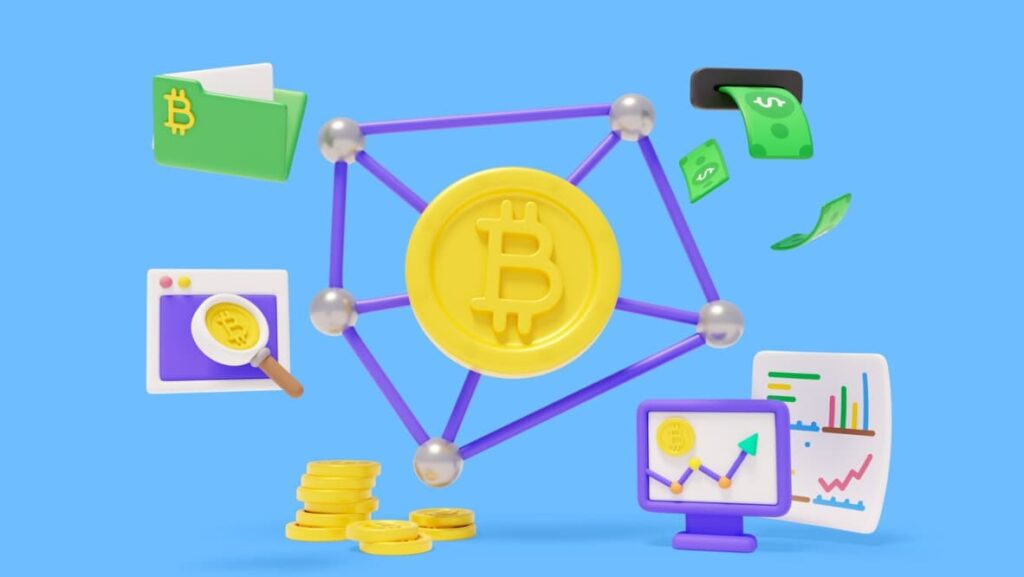Since the launch of Amazon and eBay in 1994, the landscape for buying and selling goods and services has undergone a significant transformation. The concept of a free market has revolutionized market relationships by eliminating the inefficiencies associated with third-party involvement, thereby achieving tremendous success.
One of the notable drawbacks of the contemporary economy, which the free market adeptly addresses, is the role of intermediaries, or middlemen, and their dominion over businesses. This correction occurs progressively, and currently, we are observing a phase where the significance of intermediaries in online marketplaces is diminishing.
Initially, markets were confined but introduced new prospects for producers, sellers, and consumers. The emergence of the internet further revolutionized this space, as online marketplaces began to supplant traditional stores, compelling every retailer to consider shifting their business online entirely or partially.
Today marks the onset of another evolutionary phase in the market with the introduction of blockchain technology. Disrupting established norms across various sectors, blockchain paves the way for novel market opportunities, revolutionizing internet transactions and our daily lives.
Understanding the impact of blockchain on markets necessitates addressing a fundamental question: what exactly is a blockchain-based market?
Exploring Blockchain-Based Markets
Blockchain technology comprises a decentralized network of blocks that record, authenticate, and monitor cryptocurrency transactions and contracts among parties.
Decentralized markets are peer-to-peer networks facilitating direct interactions between consumers and merchants, bypassing intermediaries. These markets connect three main user groups: producers, retailers, and consumers.
Similar to conventional online markets, decentralized platforms allow producers to share product details. Retailers present and promote their products, while consumers search and purchase items.
A distinctive feature of blockchain markets is the payment model for manufacturers, who are compensated only upon the sale of their products. Retailers benefit from the autonomy to price and present their products, potentially earning more per sale. Consumers, on the other hand, gain access to top-quality products at competitive prices, benefiting all parties involved.
The revolutionary aspects of blockchain in marketplaces are outlined below.
Distinctive Advantages of Blockchain Over Traditional Markets

Blockchain-based markets eliminate intermediaries, ensuring all transactions are publicly recorded, offering unprecedented security and transparency levels.
Moreover, blockchain incorporates smart contracts—digitally signed agreements executed on distributed computing platforms like Ethereum. These contracts are public, safeguarding against fraud.
By adopting blockchain, producers, sellers, and consumers can trade goods and services with enhanced trust and transparency, operating under their own rules without third-party restrictions.
The Mechanics of Blockchain Markets
Blockchain markets operate through a network of users or nodes, each contributing computing power to ensure the network’s availability around the clock. Transactions within this ecosystem are conducted using cryptocurrency (tokens), which can be exchanged for Bitcoin or traditional fiat currencies. A nominal fee, approximately 0.0001 BTC (around 1 USD), may be required to confirm transactions, though this fee can sometimes be waived. The system’s design facilitates instant payments, eliminating the need for intermediary services. This technology enables retailers to efficiently showcase their products and services and gather customer feedback. Due to the immutable nature of blockchain data, information cannot be altered or deleted, ensuring a secure and transparent transaction environment. Smart contracts, once created, are permanent and self-executing, further reducing the need for intermediaries.
Traditional Market Dynamics
- In contrast, traditional markets are governed and owned by third parties, imposing specific terms and conditions on platform users. Transactions typically involve intermediaries who take a commission, which varies across platforms (e.g., Amazon at ~15%, eBay at ~10%, and Etsy at ~2.5-3.5%);
- These markets often lack transparency regarding sales algorithms, vendor requirements, and performance metrics;
- Additionally, personal information is required and vulnerable to theft, and terms of agreements can be unilaterally changed by the third party overseeing the platform.
Blockchain’s Solution to Disputes
- Blockchain’s decentralized nature removes intermediaries, directly connecting sellers and consumers. This raises questions about dispute resolution and consumer protection;
- Blockchain employs smart contracts as a mechanism for agreement between buyers and sellers;
- These contracts specify the terms of transactions, providing at least two methods for dispute resolution: escrow services and trusted third parties.
Escrow Services
- Upon agreeing on the transaction terms, the consumer pays for the product, with funds held in escrow;
- The consumer confirms receipt and satisfaction with the product, triggering the release of escrow funds to the seller;
- If the product is unsatisfactory, escrow funds are returned to the consumer.
Trusted Third-Party Mediation
- Buyers and sellers can agree to involve a neutral intermediary in the transaction, who is granted access to decrypt communication between the parties;
- In the event of a dispute, this intermediary reviews the smart contract and mediates between the buyer and seller, functioning similarly to a judicial system.
Through these mechanisms, blockchain markets offer a secure, transparent, and efficient alternative to traditional marketplaces, ensuring that all parties can transact with confidence.
Exploring the Impact of Blockchain on Market Dynamics
Blockchain technology introduces a transformative network business model, breathing new life into the marketplace through innovative user interactions, payment systems, and contractual agreements. But how exactly does blockchain refine market mechanisms with its hallmark features like cryptocurrency transactions, smart contracts, and decentralization? This discussion delves into the groundbreaking attributes blockchain brings to the marketplace.
Decentralization of Hosting Services
Blockchain-driven markets are autonomously hosted by user networks, leveraging collective computing power. This decentralized approach not only ensures round-the-clock market availability but also redefines data management for enhanced security, privacy, and transparency. The elimination of centralized hosting services paves the way for reduced operational costs, allowing for more competitive pricing among producers, retailers, and consumers.
A case in point is Sia, which utilizes decentralized cloud technology to offer market solutions that are significantly more affordable than traditional cloud services, ensuring constant accessibility and cost-efficiency.
Autonomy in Terms and Conditions
The exclusion of intermediaries means market participants are no longer bound by third-party terms, granting sellers the freedom to establish their own sales conditions. This autonomy empowers manufacturers and sellers to share product information and pricing on their terms, fostering a more versatile and lucrative marketplace.
OpenBazaar stands out as a platform that merges traditional market virtues with blockchain’s flexibility, enabling businesses to dictate their operational terms, thereby optimizing for inventory management, search efficiency, and cost-effectiveness, while spurring competitive pricing for consumers.
Reduced Costs and Commissions
Blockchain’s model drastically lowers the expenses associated with product sales compared to traditional marketplaces. By diminishing transaction fees and removing payment intermediaries, blockchain markets offer more attractive price points for both vendors and consumers. Platforms like BitBay exemplify the integration of Bitcoin payments, showcasing the benefits of lower fees and competitive pricing.
Innovative Drop-Shipping Models
Decentralized platforms revolutionize drop-shipping by providing comprehensive sales management tools, enhanced revenue opportunities for vendors, and access to a global product selection for consumers. Unlike conventional models where producers bear the cost of listing products, blockchain allows for a more dynamic marketplace where sellers can freely promote products, and consumers enjoy access to worldwide offerings at the best prices.
The Harvest network exemplifies an effective blockchain-based retail model, offering a rewards program that benefits all marketplace participants, from consumers to manufacturers.
Enhanced Market Security
Blockchain marketplaces guarantee the integrity of every transaction through meticulous record-keeping in blocks. This method simplifies transaction tracking and safeguards against fraud and manipulation, creating a secure trading environment.
Platforms like Syscoin prioritize consumer safety by incorporating arbitration and digital certification for secure document exchange, illustrating blockchain’s commitment to secure and transparent market operations.
Transparency in Product Lifecycle
Transparency is a cornerstone of blockchain technology. Blockchain marketplaces enhance the visibility of transactions and agreements, encouraging vendors to validate their business practices and product quality. Digital identifiers allow for real-time tracking of goods through the supply chain, fostering consumer trust and accountability.
Provenance serves as a prime example, enabling businesses to trace the journey of products from production to sale, thereby enhancing customer satisfaction and service quality.
The Role of Smart Contracts
Smart contracts eliminate the need for intermediaries, facilitating a true peer-to-peer trading environment. Their tamper-proof and reliable nature allows for flexible and secure agreement terms between parties, paving the way for a new era of market platforms where transactions between retailers, vendors, and consumers are conducted with unparalleled trust and efficiency.
Platforms like Canya incorporate smart contracts to streamline transactions, subscriptions, and user agreements, showcasing the potential of blockchain to revolutionize market interactions.
Spotlight on Decentralized Online Marketplaces
OpenBazaar: A Pioneer in Blockchain Marketplaces
- OpenBazaar stands out as a hallmark of blockchain marketplace innovation since its inception in April 2014 by a team of enthusiasts in Toronto. Garnering support from additional developers and venture capital investments, OpenBazaar has established itself as a leading anonymous market platform;
- It leverages personal key pairs for users to digitally sign transactions and maintain data anonymity. Furthermore, the platform adopts escrow contracts necessitating multiple approvals from both buyer and seller, enhancing transaction security and trust.
ModulTrade: Empowering Small Businesses in Global Trade
- ModulTrade addresses a critical challenge for small enterprises: finding consumers. The platform offers a robust solution for small businesses that struggle with making their financial propositions cost-effective;
- By utilizing smart contracts for deposit operations, ModulTrade enables small businesses to engage in global trade efficiently, facilitating a seamless exchange process.
Blockchain: The Future of Marketplaces?

The introduction of blockchain technology by Satoshi Nakamoto around nine years ago, accompanied by an innovative payment system, signaled a pivotal moment for the world’s financial infrastructure. Visionary players recognized the potential for blockchain to overhaul the framework of financial services globally.
Experts remain divided on the impact of blockchain on online marketplaces, with some forecasting a transformative shift towards decentralized models, while others question the competitiveness of blockchain markets against their traditional counterparts. However, the ongoing evolution of blockchain continues to challenge established industry paradigms, fostering more competitive structures, particularly in retail.
Decentralized marketplaces are becoming a more prominent fixture, as history shows a consistent trend of intermediaries being phased out in favor of more efficient alternatives. The global nature of blockchain-based marketplaces offers them a distinct advantage, as highlighted by John Fraser: Blockchain markets inherently bypass the complexities of navigating local laws and banking regulations in each jurisdiction, presenting a streamlined, borderless platform for companies to operate globally.
Conclusion
As the digital marketplace continues to evolve, blockchain technology emerges as a pivotal force, reshaping the landscape of e-commerce with its decentralized, secure, and transparent framework. Through platforms like OpenBazaar and ModulTrade, blockchain proves its potential to empower small businesses, facilitate global trade, and offer consumers unparalleled security and privacy. Despite varying opinions on its competitive edge, the consensus leans towards blockchain’s disruptive capacity, promising a future where traditional intermediaries are obsolete, and marketplaces operate on a global scale with reduced costs and increased efficiency. This shift towards blockchain-driven marketplaces not only heralds a new era of online commerce but also signifies a profound transformation in how transactions and trade are conducted worldwide, underscoring blockchain’s role as a foundational technology for secure and transparent online transactions.
